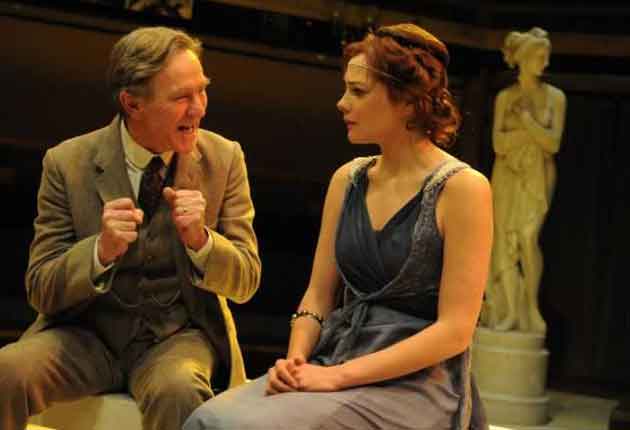The Promise, Orange Tree Theatre, London

Did the state of Israel come into being because of the British prime minister's fury at his girlfriend's marrying an anti-Zionist? Audiences at Ben Brown's drama might be forgiven for thinking so. Despite the romantic digression, however, the play delivers a great deal of information in a consistently engrossing manner as it brings to life both the politicking that led to the Balfour Declaration.
The Promise begins with the Zionist Chaim Weizmann, in 1914, explaining his vision to Herbert Samuel, the first "really" Jewish MP (Disraeli could serve only because he had converted to Christianity).
While Samuel and Prime Minister Herbert Asquith are sympathetic, they are fiercely opposed by Edwin Montagu, also a Jewish MP, though one who retains his religion in name only. And the Jewish cause, as well as the First World War, are of little interest to Asquith beside his obsession with Venetia Stanley, 35 years his junior; during Cabinet meetings, he ignores his ministers to write love letters. But, when she marries Montagu, Asquith drops him from the Cabinet ("You're sacking me!" "I wouldn't put it like that"), and brings Lloyd George, also pro-Zionist, into the government. The result is the British commitment to a Jewish homeland in Palestine.
Alan Strachan's production has some fine acting, notably by the two men whose careers and hearts are broken by Stanley (a rather wet Miranda Colchester). Nicholas Asbury (Montagu) and Christopher Ravenscroft (Asquith) are both impressive in their intellectual vigour and emotional frailty; the latter handles the tricky role with a delicacy that subdues its potential for the ridiculous.
Though the play unprofitably follows Stanley's private life after her influence ceases, it also conveys the tangle of self-interest, national interest, arrogance, and humanitarianism that led to the bloody birth of a nation. Samuel pushes for the British to be "civilisers" of the Palestine Arabs, "sunk in squalor" under the Ottoman Turks.
Asked what will happen to the Arabs opposed to Israel, Weizmann replies, "They will have to go elsewhere", brusquely saying what his people have been told for centuries. But it is Balfour (a sleepy-crafty Oliver Ford Davies) who has the play's last words: one can't expect the British government, he says, "to keep all its promises".
To 20 March (020 8940 3633)
Join our commenting forum
Join thought-provoking conversations, follow other Independent readers and see their replies
Comments